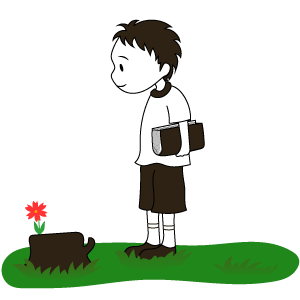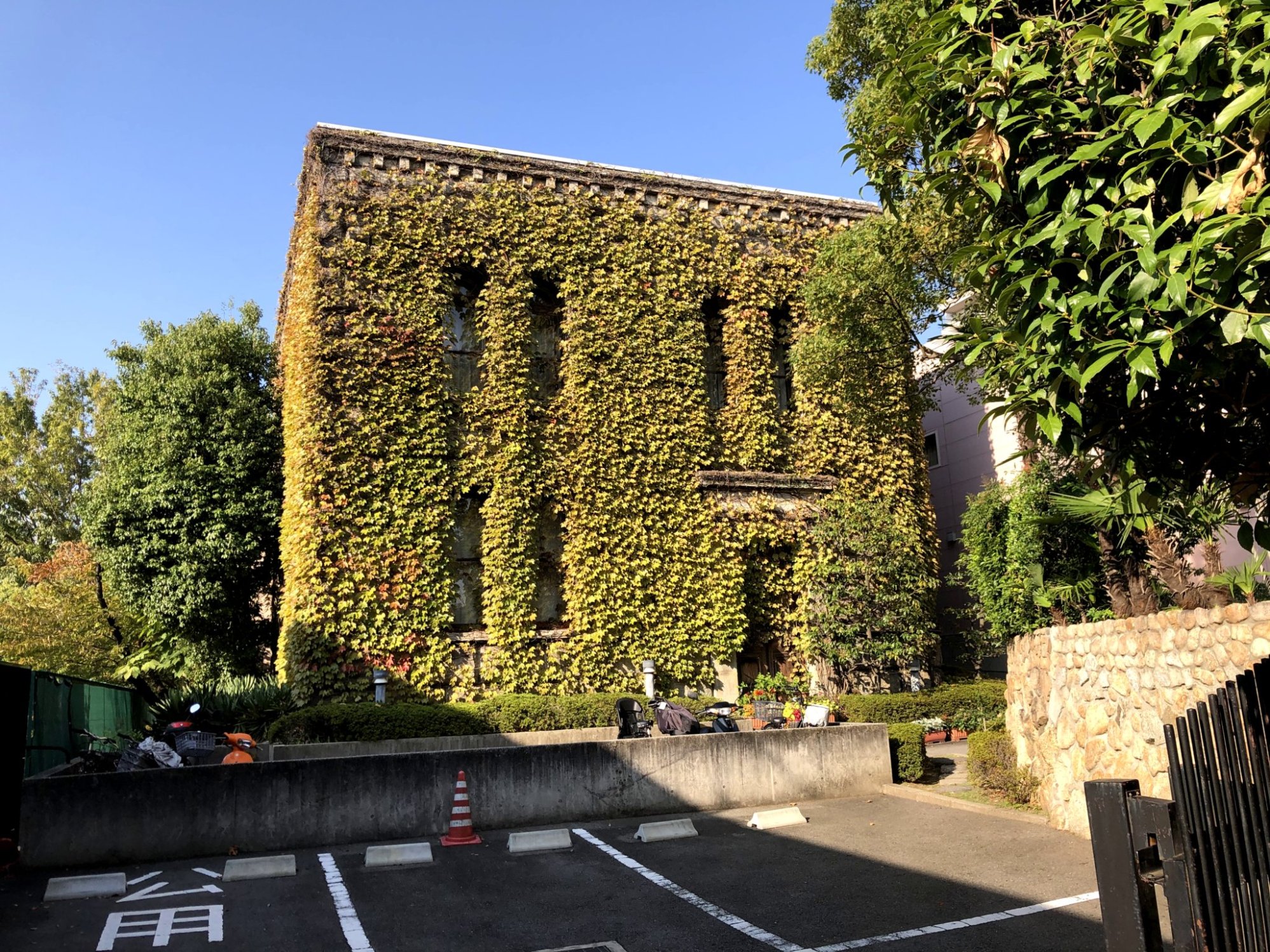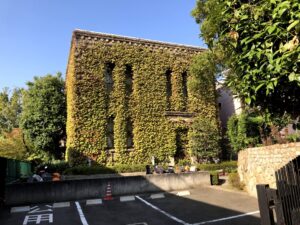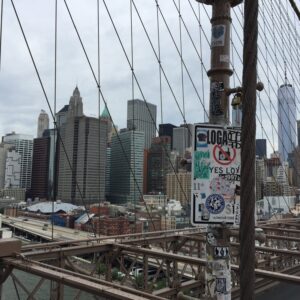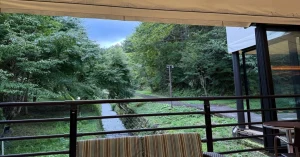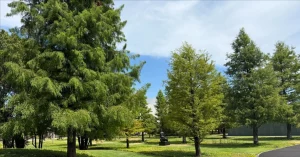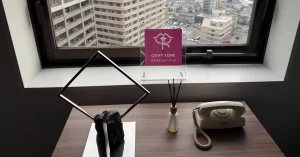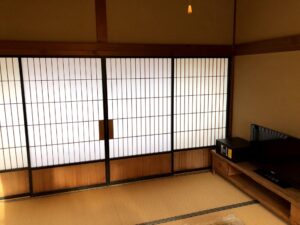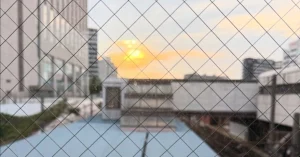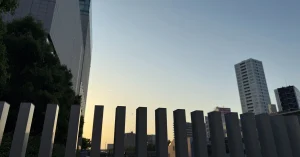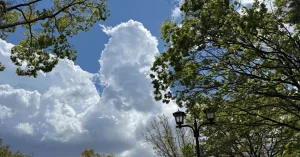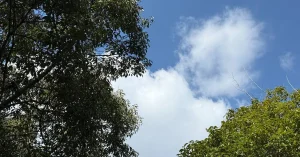(This is an article I wrote elsewhere two years ago.)
I had some free time, so I went to Kobe.
I was a little mentally tired, so I decided to go to Arima Onsen for a rest and relaxation, just like a great writer of the Meiji era. And the main purpose of the trip was to retrace the steps of Haruki Murakami, whom I respect.
I have always loved traveling to trace the origins of my favorite writers. This is because I can learn the background of the works and read my favorite works more deeply by visiting the places where the writers I admire were born, raised, and wrote, starting with Soseki Natsume and Ryunosuke Akutagawa, and including Osamu Dazai, Makisui Wakayama, and Kenji Miyazawa, and by seeing the writers’ footprints there.
Of course, many of the writers are deceased, and the scenery and buildings of those days have probably changed little. However, I think it is also interesting to feel the residuals of those works, taking into account the changes that have already taken place.
The target this time was Haruki Murakami.
As you know, Haruki Murakami lived in Kansai until he entered university and moved to Tokyo. To be more specific, it is a place called Shukugawa, Ashiya City.
And this time, for the first time in my life, I set foot in a place called Ashiya. I got off at the station called “Kohzono” and walked along the Shukugawa River amongst the students who were just going to school.
I also took a quick walk around the elementary and junior high schools from which he graduated, so as not to be seen as a suspicious person.
Indeed, as Haruki mentioned, there was still an atmosphere of downtown Kobe in the echo of the upscale residential area called Ashiya (although the feeling was different from the so-called “downtown” of other cities).
Furthermore, on a more condescending note, I would have loved to visit his birthplace, but nothing came up when I searched the Internet, so I gave up early on, thinking that it was probably kept in secret.
As a manner of visiting these artists, I imposed on myself to visit them quietly and not to take pictures or ask people about them unnecessarily. Even if the person is deceased, I never enter a place that I think he or she would not have wanted me to see.
Having read in his essay (“The Fitzgerald Book”) about his favorite journey to retrace Haruki’s steps, a pilgrimage from his birthplace to the cemetery in Rockville, I thought he would forgive me if I did something similar to this.
Of course, since Haruki Murakami had not yet passed away, it could not be called a pilgrimage, but I could not wait very long, so I took the liberty of moving it forward.
I walked to the JR station called Uchide and visited the Ashiya City Library, which I used to go to when I was a student. Unfortunately, I could only see the outside of the library since it was still before opening time, but it was a very nice building as rumored (on the Internet). I was deeply impressed by the fact that Haruki Murakami read a lot of classic literature here, which gave him a good foundation in literature.
We walked further to Ashiya station and then to Sannomiya. What became clear to me during this series of trips (or rather strolls?) was the unique atmosphere of the city where he spent his time.
Just as Mr. Ryunosuke Yoshimoto once found the literary home of Ryunosuke Akutagawa in the downtown area (with its mosquito-filled smell of ditch), Haruki Murakami’s town may be the same downtown area, but I felt it was more like Western culture with the scent of tea in the air.
And this, I thought, was one of the factors that contributed to Haruki Murakami’s style and the elegance that wafted through the area. This was the air that was wafting from that Shukugawa River into Ashiya as an invisible atmosphere. Unfortunately, the river and the library were truly a world apart from the town where I live.
Of course, the environment in which a writer is born may not determine everything about his or her style, but the atmosphere that is naturally created in his or her works is something that cannot be completely separated from the place where he or she lived.
And Mr. Haruki used to be able to walk to the beach from his birthplace. But suddenly the beach was reclaimed, breakwaters were built, and the ocean was no longer an environment where one could swim. In her essay, she wrote about the sorrow of her loss (I think she threw an empty can into a gap in the breakwater?) ).
Certainly, the sea was not visible from Kohzono. We could only see the skyscrapers of Rokko Island in the far distance. Perhaps the sense of loss was considerable.
However, looking back, there is Mt. Rokko. Perhaps that landscape has not changed much. Even from a distance, I could see that there were rows of luxurious-looking houses.
At that moment, it suddenly occurred to me. This town of Kobe used to have mountains right behind it, an ocean where one could swim, a cultural atmosphere, and a sense of openness where foreign ships would come and go. All of these things have been condensed into a land of moderate size. This is exactly what Haruki Murakami’s works (especially his early works) are like.
After that, Haruki Murakami went on to Waseda University to become a writer, and after living abroad (in Boston, which is somewhat similar to Kobe), he set up a house in Oiso, Kanagawa Prefecture.
Oiso is also my grandmother’s home, so I visited there several times when I was a child. There is an ocean where you can swim (and surf), and if you look back, there are mountains right in front of you. It is also close to Shonan, a surfing mecca. In other words, it resembles the town of Shukugawa, where Haruki was born and raised.
This may not be limited to writers, but it means that the works produced are not only influenced by the place where one was born and raised, but also have a great influence on the mind of the author himself.
Even if a person has abandoned his or her hometown for some reason, he or she may unknowingly and undeniably try to find a hometown in his or her life that is similar to the one in which he or she was born and raised. It means that the person will (or has) recreated the atmosphere, air, culture, and family environment of the town where he or she grew up in the place he or she seeks.
This is in a sense a curse and at the same time a blessing, and for the novelist it may be called an unavoidable destiny. But on the contrary, by expressing it as a work of art, the novelist may be rediscovering his or her lost hometown.
See you soon.
